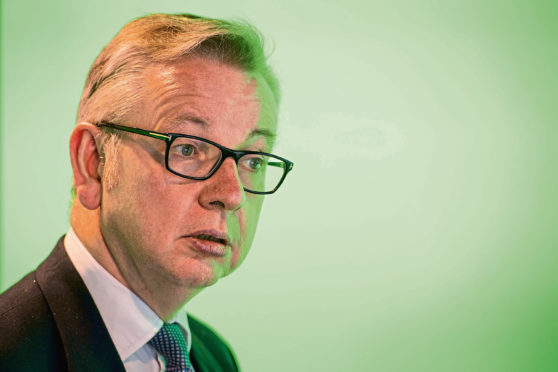Farmers in England are to be given seven years to adapt to life without the direct support they have relied on from Europe for almost 50 years.
The Agriculture Bill, published at Westminster, sets out the government’s plans to start reducing direct payments in 2021 and phase them out completely by the end of the transition, with the last payments made for the 2027 scheme year.
The support will be replaced by a new system of environmental land management payments, and farmers who provide the greatest environmental benefits will secure the largest rewards under the new scheme.
The “public goods” the government wants to see farmers rewarded for include better air and water quality, improved soil health and higher animal welfare standards.
The government says most farmers will see some reduction in their payments during the transition, although those who receive the highest payments will see bigger reductions initially as the top 10% receive almost 50% of total payments.
In the first year of transition, 2021, farmers who receive up to £30,000 in direct payments will see them reduced by up to 5%, but farmers who currently receive £150,000 or more could see their payments reduced by up to 25%.
The government thinks this could free up £150 million to reinvest into delivering pilot schemes, invest in research and development and provide support for farmers during the transition.
Defra Secretary Michael Gove said: “After nearly 50 years of being tied to burdensome and outdated EU rules, we have an opportunity to deliver a Green Brexit. This Bill will allow us to reward farmers who protect our environment, leaving the countryside in a cleaner, greener and healthier state for future generations.”
The Agriculture Bill sets out primary legislation mostly for England but provides powers for the Welsh and Northern Ireland administrations to pursue their own reforms.
The Scottish Government is not taking powers in the Bill.
